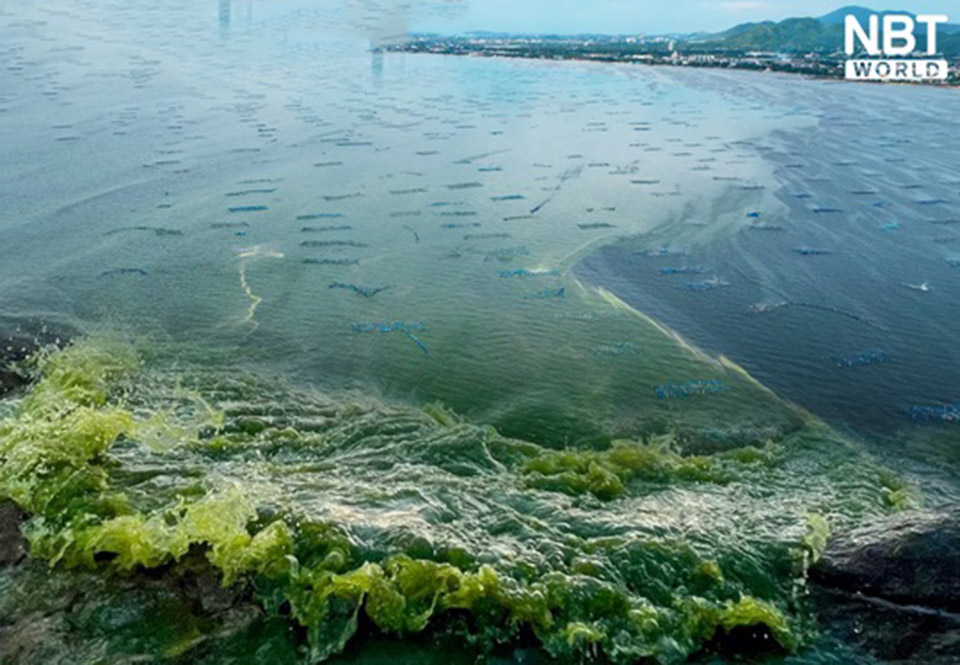
An unusually dense plankton bloom off the eastern coast of Chonburi province has created an aquatic “dead zone,” posing a threat to local fishermen and mussel farms.
Marine scientists have observed that certain areas in the Gulf of Thailand are experiencing over ten times the normal plankton levels, turning the water a vibrant green and causing marine life to perish. Typically occurring once or twice a year and lasting two to three days, plankton blooms can produce toxins harmful to the environment, deplete oxygen levels, and block sunlight, resulting in dead zones.
The Chonburi coast, renowned for its mussel farms, has been significantly affected, with over 80% of the nearly 300 plots in the area suffering from the bloom. Officials said massive numbers of dead fish have been discovered along a 1,500-meter stretch of shoreline on popular beaches in Chonburi due to the plankton bloom. They noted, however, that the seawater in the area remains safe for recreational activities and surrounding communities, although oxygen levels have decreased due to the bloom.
While the exact cause of this intense plankton bloom remains uncertain, scientists believe that pollution and the intense heat linked to climate change are the contributing factors. El Niño, which leads to drought and higher sea temperatures, exacerbates the situation. Scientists emphasize the importance of resource management, water conservation, and sustainable living practices to mitigate such environmental challenges.
Earlier this year, another plankton bloom led to thousands of dead fish washing up along a Chumphon province beach, with experts attributing these occurrences to the impact of climate change. Globally, marine heatwaves have become a growing concern, resulting in thousands of dead fish on Texas beaches and the emergence of algal blooms along the British coast due to rising sea temperatures. (NNT)






